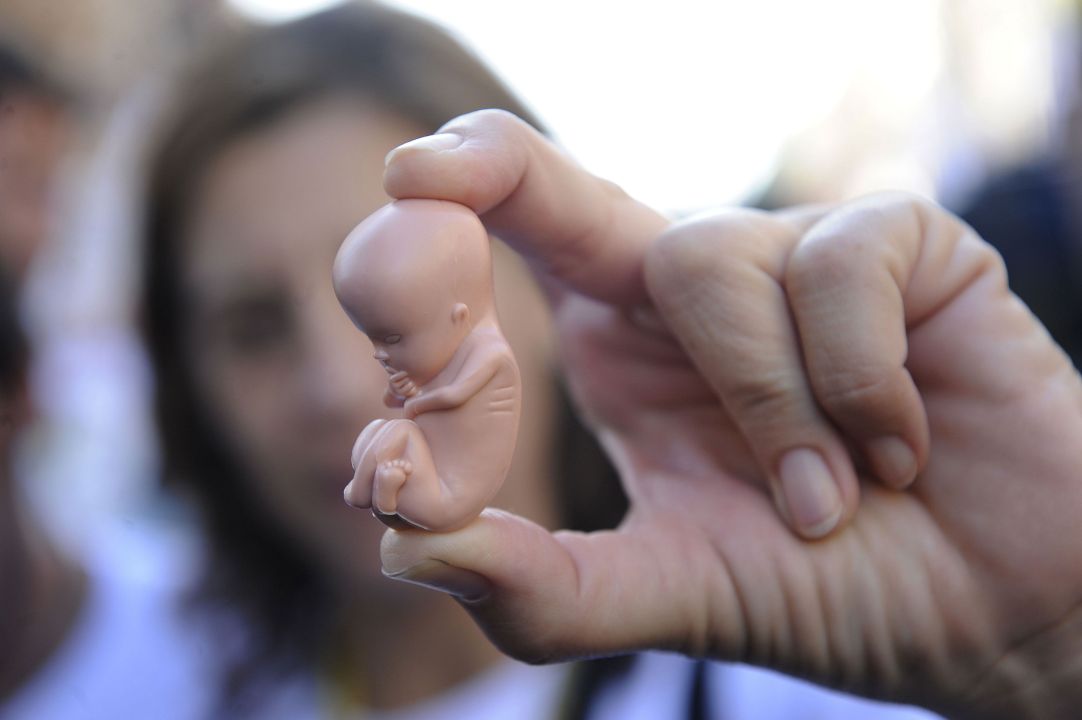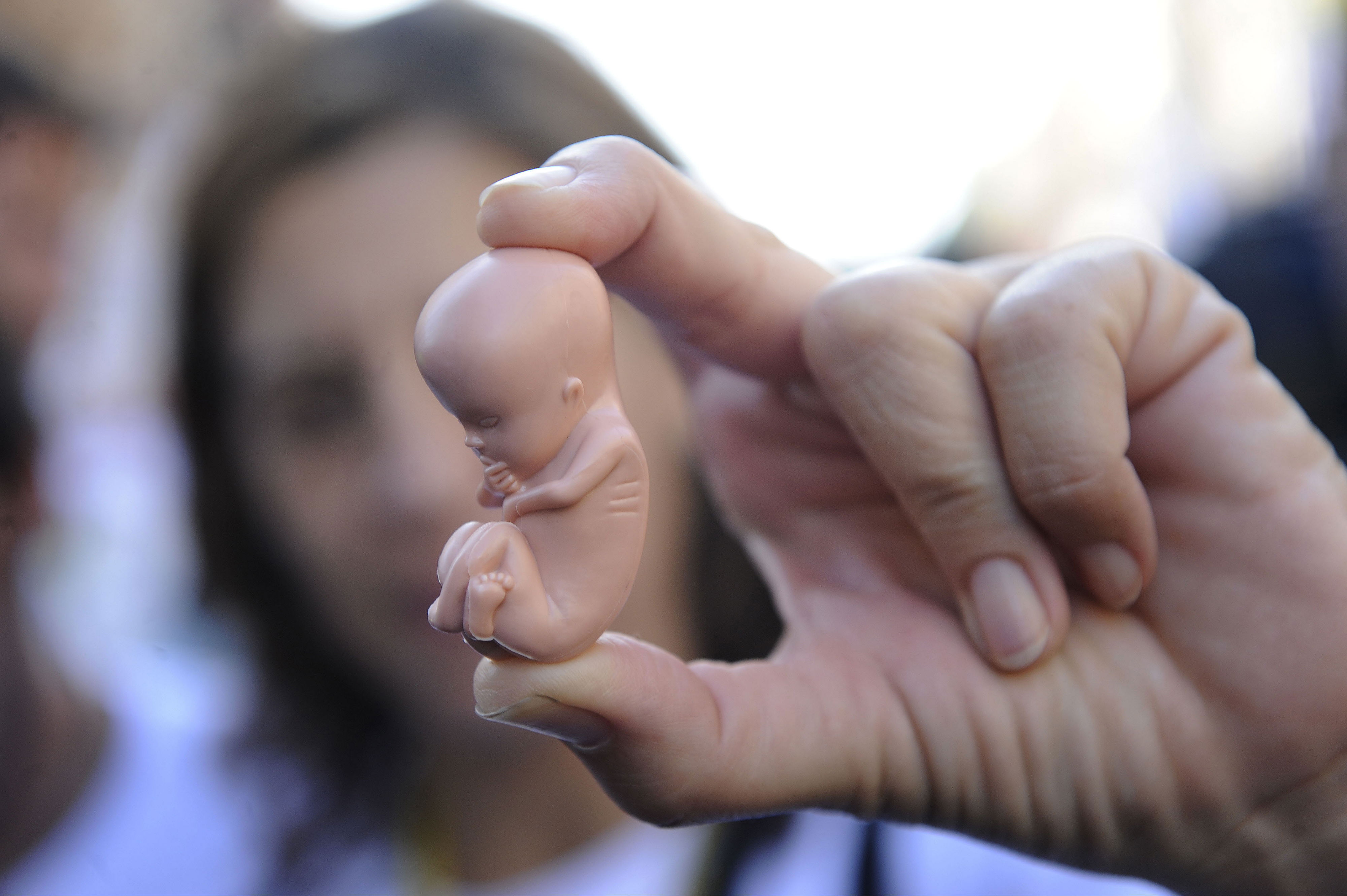You know all that stuff about ‘safe spaces’, places on university campuses where you’re not allowed to say or do anything mean or that could possibly be construed as mean about anyone in case it hurts people’s feelings, especially if you’re a minority of some description? Well, I got the chance to try it out myself the other day. I was at a gathering in Dublin of pro-lifers – I’d been asked to be one of the speakers at their annual event – and it was all going well. There had been a nice young woman talking about hostels for single mothers. There was also a professor of law from Trinity, Dublin, who discussed the background to the Eighth Amendment, which extends equal right to life to both mothers and their unborn offspring. It effectively prohibits most abortions, and the Labour party is trying to abolish it.
And then, out of nowhere, there were shouts at the back and three women in black stormed the stage with bits of paper with handwritten abortion slogans. Oh God, I thought; here we go. The professor halted in his tracks, the organisers put on loud music, and the entire proceedings halted for a premature tea break. The three women squatted, then sat on the stage and refused to budge: one with bright red hair and nose studs, one with a two-tone black-and-white ponytail, and a wizened one with a crutch. It was, qua spectacle, quite something.
It’s a bad look for men to haul grown women off a stage – a bit reminiscent of Suffragette, without the appealing clothes – but women on women is another matter. I got up to talk to them. ‘Please will you move?’ I said plaintively. ‘I’m meant to be speaking and I have to say I find your presence intimidating.’ They avoided eye contact and shook their heads. ‘It’s meant to be a place for free speech,’ I said. ‘We’re not stopping you,’ they replied. ‘But you are.’ ‘No, we’re not.’ This could have gone on, so I tried another tack: ‘I really don’t feel that this is a safe space for me with you here.’ At this, the two young ones shifted uncomfortably and the one with the crutch lifted it and shook it: ‘What do you mean, safe? How the hell am I meant to be threatening, with this?’ ‘Actually, that’s how I feel.’ They looked awkward and one said: ‘We won’t interrupt you.’ We left it there, both parties trying to appropriate the same role: would-be victims. And we were each equally insincere.
The upshot was that the three protestors stayed on stage, taking selfies and talking on mobiles, and wherever they positioned themselves, the organisers placed their banners, blocking the view for photographers. At one point, while a young girl was talking about pro-life activities at universities, two of the pro-choicers in black stayed put and the third, the one with the crutch, hobbled about at the back. It was a striking tableau. They left during the interval, to ironic applause.
Actually if you want to energise a meeting, a disruptive element really gets an audience going. So the good-natured gathering was receptive to my own pretty obvious argument, which is that any anti-abortion movement has to refuse to be corralled into the corner labelled ‘religious’ (I got an even more sympathetic reaction when one man stood up to quote the prophet Jeremiah). The argument underlying the Eighth Amendment is simply that a foetus is human too; it doesn’t magically acquire humanity at an arbitrary point in gestation identified by law. It’s an observation which atheists can lay claim to every bit as cogently as the religious. As I observed, the most effective pro-life advocate in British journalism is Dominic Lawson, this magazine’s former editor, who happens to be Jewish by background and atheist by conviction. But given the conformist nature of Irish journalism, there isn’t much space for intelligent dissent on the abortion question.
Yet I’m not sure a purely rational approach will cut it, given the nature of the campaign against the provision in the constitution to protect prenatal life. It’s billed as ‘Repeal the Eighth’, which is turning out to be as irritating a virtue-signalling exercise (phrase copyright, The Spectator) as the gay marriage campaign. Same self-satisfied slebs, same pundits, same mutual regard. This is nowhere more apparent than in the Artists’ Campaign to repeal the Eighth Amendment, which includes the likes of Marian Keyes and John Banville, whose last novel, may I say, was pretty well unreadable. This campaign is not an argument; it’s a collective sad-face emoticon; a group hug. And in the run-up to the Irish general election, we shall be hearing a lot more about it.








Comments